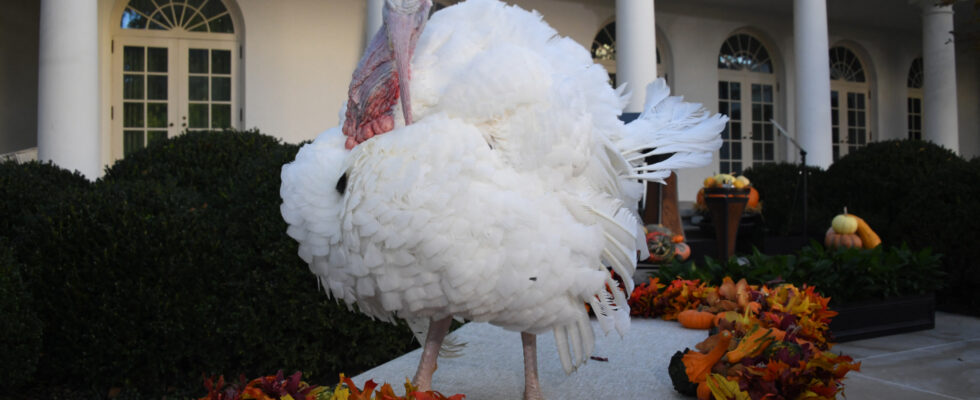Gauthier Delomez / Photo credits: Credit OLIVIER DOULIERY / AFP
This Thursday, November 23, is already a holiday in the United States. Americans celebrate “Thanksgiving” every year, every fourth Thursday in November, traditionally by eating turkey at the meal. A celebration that has become so essential across the Atlantic that this day is a public holiday. Origin, turkey tasting… Europe 1 takes stock of this still relatively little-known celebration in Europe.
Where does this party come from?
To know the origins of Thanksgiving, we must go back to the colonization of America by Europeans. In 1620, English dissidents – the Pilgrim Fathers – landed on the island which would be called New England. On site, natives teach them fundamental skills, namely hunting, fishing and corn cultivation. The first harvest was celebrated in 1621, and the British colonists invited them to share their meal to thank them. This is how Thanksgiving was born.
Why turkey?
During this historic meal, in the fall of 1621, the colonists and natives enjoyed… five deer, wild turkeys and pigeons. So today is a way to remember that first Thanksgiving. What’s more, turkey offers the advantage of being able to feed a large number of people at low cost.
This tradition was exported to the White House, but in 1963, John Fitzgerald Kennedy decided to “pardon” one of them. Since then, every president of the United States has pardoned a turkey every fourth Thursday in November.
Where is this festival celebrated?
In addition to the United States, Canada also celebrates Thanksgiving, but not on the same day. Canadians honor the harvests, and they give thanks for the happiness received during the year. Note also that this festival is celebrated at the same time as the United States in the city of Leiden, in the Netherlands, since the Pilgrim Fathers took refuge there at the beginning of the 17th century.
